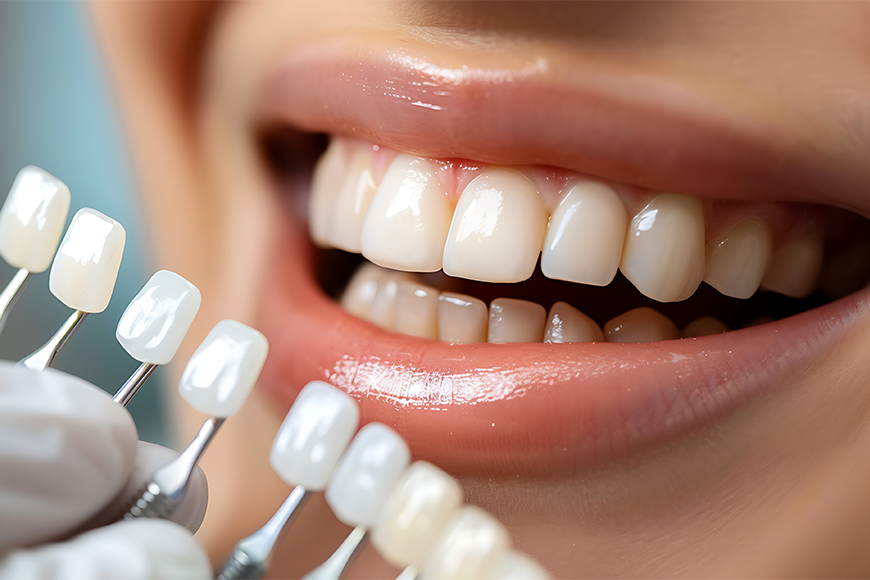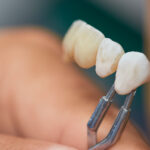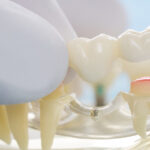Have you ever wondered about the options available when it comes to dental crowns? If you’re facing a situation that requires a crown, understanding the different types of dental crowns and their benefits can help you make an informed decision. In this comprehensive guide, we’ll delve into the world of dental crowns, exploring their purpose, materials, and the best choices for various dental needs.
What is a Dental Crown?
A dental crown is a protective cap that is placed over a damaged or weakened tooth. It can be used to:
- Restore a tooth to its original shape and size
- Strengthen a tooth that is at risk of fracture
- Improve the appearance of a discolored or misshapen tooth
Types of Dental Crowns
Porcelain Fused to Metal (PFM) Crowns
- Metal Core: The metal core of a PFM crown can be made from various materials, including gold, nickel-chromium alloy, and cobalt-chromium alloy. Each material has its own unique properties, affecting factors such as strength, biocompatibility, and cost.
- Porcelain Layer: The porcelain layer is carefully applied and fused to the metal core using a high-temperature process. This creates a strong and durable bond that can withstand the forces of chewing and biting.
- Advantages: PFM crowns are known for their strength, durability, and resistance to wear and tear. They are often considered a good choice for molars and premolars, which experience significant biting forces.
- Disadvantages: While PFM crowns are strong, they may not be as aesthetically pleasing as all-porcelain crowns. In some cases, the metal core can show through the porcelain, especially at the edges of the crown.
All-Porcelain Crowns
- Materials: All-porcelain crowns can be made from various types of porcelain, including feldspathic porcelain and zirconia. Feldspathic porcelain is more translucent and can better mimic the natural appearance of teeth, while zirconia is known for its exceptional strength and durability.
- Advantages: All-porcelain crowns are highly aesthetic and can blend seamlessly with surrounding teeth. They are also less likely to cause gum irritation compared to PFM crowns.
- Disadvantages: All-porcelain crowns may not be as strong as PFM crowns, especially for teeth that experience heavy chewing forces. They can also be more susceptible to chipping or cracking.
Gold Crowns
- Types: Gold crowns can be made from pure gold or an alloy containing gold. Alloys can include other metals such as platinum, palladium, or silver, which can improve the crown’s strength and durability.
- Advantages: Gold crowns are extremely strong, durable, and biocompatible. They are also resistant to tarnish and corrosion, making them a long-lasting choice.
- Disadvantages: Gold crowns can be expensive, and their bright, metallic color may not be aesthetically pleasing for everyone.
Resin Crowns
- Types: Resin crowns can be made from various types of composite resin materials. These materials are often used for temporary crowns or when cost is a major factor.
- Advantages: Resin crowns are relatively affordable and can often be completed in a single visit. They are also less invasive than other types of crowns.
- Disadvantages: Resin crowns are not as durable as other types of crowns and may not last as long. They can also be more prone to staining and discoloration.
Choosing the Right Crown for You
The best type of crown for you depends on several factors, including:
Location of the Tooth
- Front Teeth: For front teeth, where appearance is a priority, all-porcelain crowns are often the preferred choice. Their natural look and translucency can blend seamlessly with surrounding teeth.
- Back Teeth: Back teeth, such as molars and premolars, experience significant biting forces. PFM crowns or gold crowns are often recommended for their strength and durability.
Amount of Damage to the Tooth
- Significant Damage: If the tooth is severely damaged or weakened, a stronger crown, such as a PFM crown or gold crown, may be necessary to provide adequate support.
- Minimal Damage: For teeth with minimal damage, an all-porcelain crown or even a resin crown may be sufficient.
Aesthetic Preferences
- Natural Appearance: If you desire a crown that closely matches the natural appearance of your teeth, all-porcelain crowns are an excellent option.
- Metallic Look: If you are comfortable with a metallic appearance, gold crowns or PFM crowns with a visible metal core may be suitable.
Budget
- Cost: Resin crowns are generally the most affordable option, followed by PFM crowns and all-porcelain crowns. Gold crowns are typically the most expensive.
- Insurance Coverage: Check with your dental insurance provider to determine the extent of coverage for dental crowns. Some insurance plans may offer partial or full coverage for certain types of crowns.
Lifestyle and Habits
- Grinding or Clenching: If you have a habit of grinding or clenching your teeth, a stronger crown, such as a PFM crown or gold crown, may be necessary to withstand the additional stress.
- Dietary Habits: Consider your dietary habits when choosing a crown. If you have a diet that includes hard or chewy foods, a durable crown is essential.
Madison Dentistry & Implant Center: Your Trusted Dental Partner
At Madison Dentistry & Implant Center, we are committed to providing high-quality dental care, including the placement of dental crowns. Our experienced dentists will carefully assess your needs and recommend the most suitable crown for your specific situation. We use the latest techniques and materials to ensure optimal results and patient comfort.
Conclusion
Choosing the right type of dental crown is an important decision. By understanding the options available and considering factors such as durability, aesthetics, and cost, you can make an informed choice that will benefit your oral health and overall well-being. If you’re in need of a dental crown, contact Madison Dentistry & Implant Center today to schedule a consultation.




